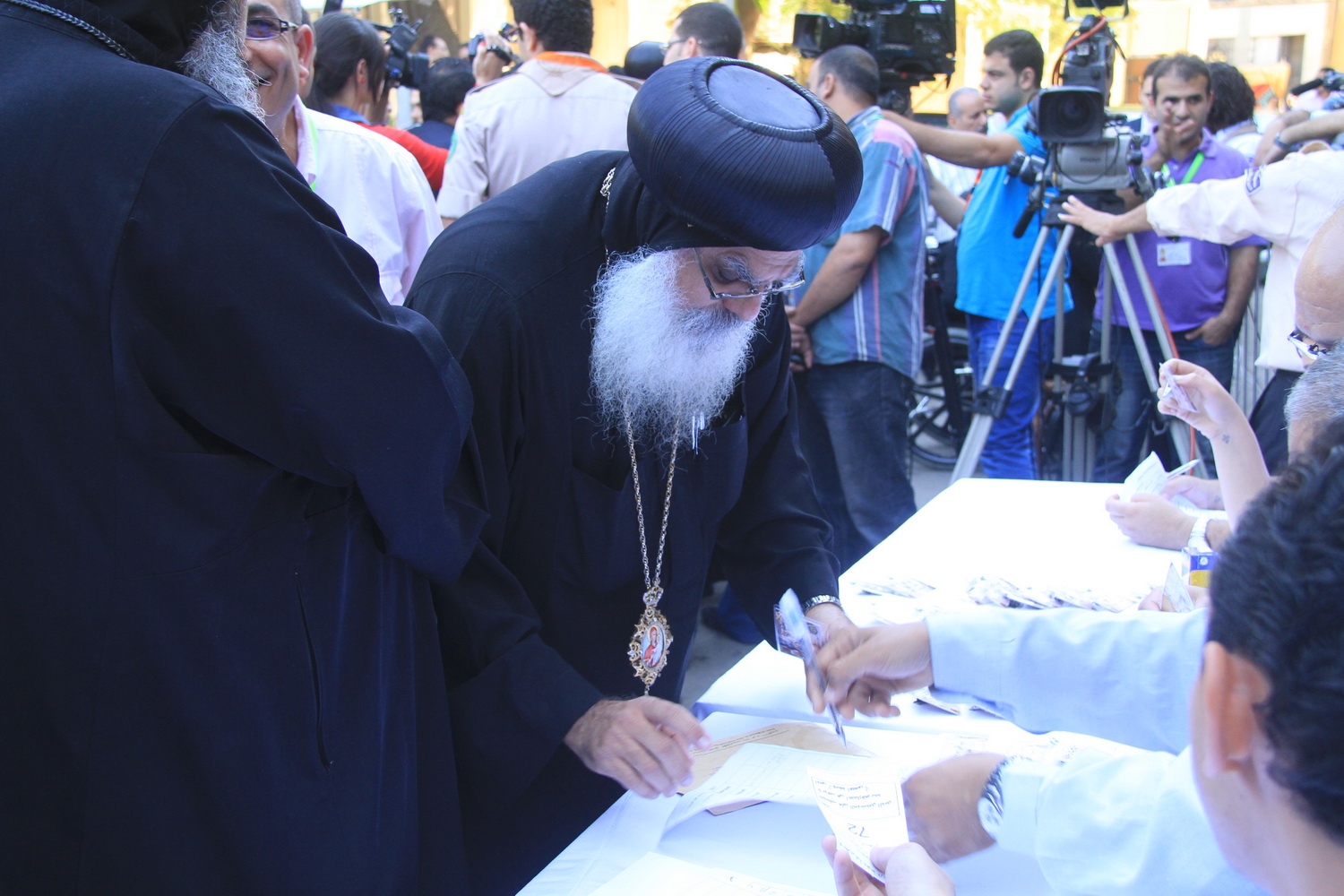
Acting head of the Coptic Orthodox Church Bishop Pachomious announced the results of Monday’s vote in a press conference on Monday evening.
Bishop Raphael, 54, of central Cairo received the most votes with 1,980. Bishop Tawadros, 60, of Beheira came in second with 1,623 votes and the monk Father Raphael Ava Mina, 70, came in third with 1,530.
Pachomious said voter turnout was at over 93 percent with 2,256 voters submitting ballots out of a possible 2,417. 161 Copts who had been invited to vote did not submit ballots and two were marked invalid.
Father Pachomious Al-Souriani received 305 votes, while Father Seraphim Al-Souriani garnered 130 votes.
The polls for the papal election at St. Mark’s Cathedral in Al-Abbaseya closed shortly after five on Monday afternoon. Following a prayer, an electoral committee proceeded to count the ballots on live television.
Monday’s election determined which three papal candidates out of the remaining five will be part of the Church’s ballot next Sunday, and potentially be selected as the 118th Pope of the Coptic Orthodox Church.
The five candidates going into Monday, Bishop Raphael of Downtown Cairo, Bishop Tawadros of Beheira, Father Raphael Ava Mina, Father Pachomious Al-Souriani, and Father Seraphim Al-Souriani, had spent the last two weeks attending liturgies together and giving sermons around Egypt.
The polls at the Cathedral opened at nine on Monday morning as roughly 2,400 voters arrived to cast their ballots. The atmosphere was upbeat amid tight security, with designated entrances to the complex open to those entering with previously issued passes.
The Ethiopian Orthodox Church sent a delegation of five electors to cast their ballots. The Coptic and Ethiopian Orthodox Churches enjoy very close relations since Pope Cyril VI granted the Ethiopian Church independence in 1959, and the two churches participate in each other’s papal elections.
All voters were given ballots with the pictures of the five candidates and their names, and had to cross out at least two of their least preferred candidates.
Those from overseas who were invited to vote were given the option of either travelling to Cairo to cast their ballots in person, or to do so remotely with power of attorney. Two of the eight ballot boxes were allocated to overseas voters.
The final selection and announcement of the Coptic Orthodox Church’s new pope will take place on 4 November in a service that will begin at eight in the morning. A blindfolded child will select one of the names of the three remaining nominees in accordance with Church law.
The papal selection is the first in 41 years and follows the death of Pope Shenouda III in March. The new pope will take his post at a critical point, as the Church faces a number of internal and external issues.
Emad Gad, a political analyst at Al-Ahram Centre for Strategic Studies and former MP of the Egyptian Social Democratic Party, voted on Monday and acknowledged some reforms the next pope will be expected to spearhead.
The current election law, which was issued in 1957, the Church’s handling of divorce, and some internal personnel changes are pressing issues that concern Gad, but he believes matters beyond the Church’s internal affairs are of the utmost importance.
“I think the hottest issues are outside the Church,” he said. “…to deal with the president, the government, and how to get the rights of Christians as Egyptians, not as a minority.”


